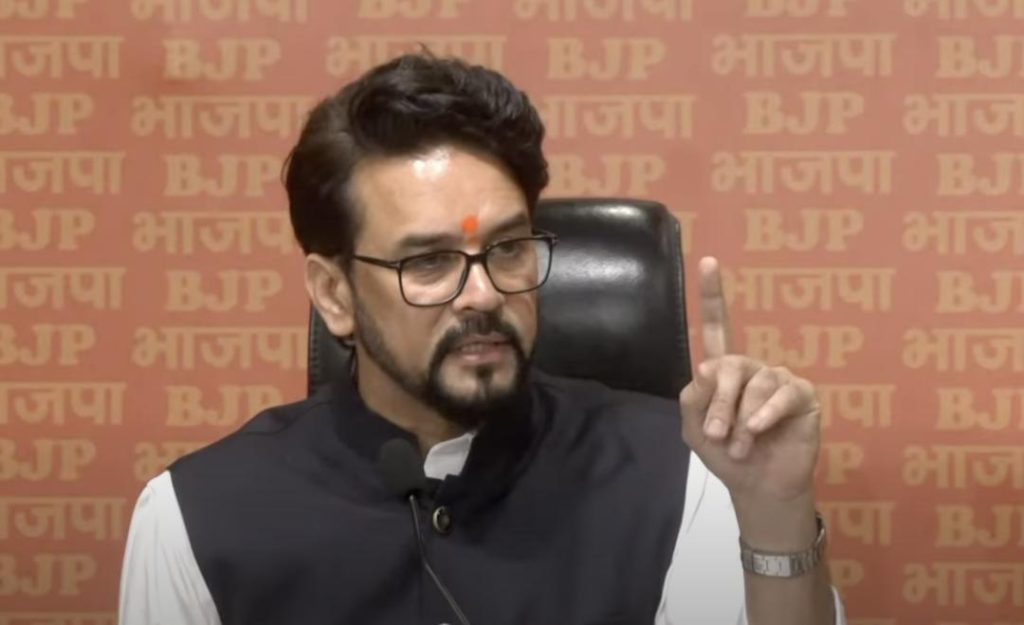
Congress & CPI made Bhimrao Ambedkar lose the poll in 1952: BJP
The Indian political landscape has witnessed numerous instances of controversy and drama over the years. One such instance that has recently gained attention is the claim made by BJP MP Anurag Thakur that Congress and CPI combined to defeat Dr. Bhimrao Ambedkar in the 1952 elections. This statement has sent shockwaves across the political spectrum, with many questioning the validity of such a claim. In this blog post, we will delve into the facts surrounding this claim and examine the historical context in which it occurred.
Dr. Bhimrao Ambedkar, the architect of the Indian Constitution, is a revered figure in Indian history. As the leader of the Scheduled Castes Federation, he was a prominent figure in the Indian independence movement. After India gained independence, Ambedkar played a crucial role in drafting the Constitution and was also the first Law Minister of India.
The 1952 elections were the first general elections held in India after independence. They took place in October and November of that year, with the Congress party emerging as the single-largest party. However, it is the defeat of Dr. Ambedkar in these elections that has sparked controversy.
According to Anurag Thakur, the Congress and CPI combined to defeat Dr. Ambedkar, a claim that has been met with skepticism by many. The BJP MP stated that 74,333 votes were rejected in the election, which he believes was a deliberate attempt by the Congress and CPI to eliminate Ambedkar from the electoral fray.
Thakur’s statement has raised several questions about the nature of Indian democracy and the role of political parties in shaping its trajectory. If indeed the Congress and CPI did collude to defeat Ambedkar, it would be a shocking revelation that would challenge our understanding of Indian politics.
To understand the context in which this election took place, it is essential to examine the political landscape of the time. The Indian independence movement was still reeling from the trauma of partition, and the country was in the process of rebuilding itself. The Congress party, led by Jawaharlal Nehru, was the dominant force in Indian politics, and it is likely that Ambedkar’s defeat was a result of the party’s dominance rather than any deliberate attempt to eliminate him.
However, it is also important to note that Ambedkar’s Scheduled Castes Federation was a Dalit-led party that had a significant following among the Scheduled Castes community. His defeat in the election would have been a significant blow to the Dalit movement, which was still in its early stages of development.
In recent years, there have been growing concerns about the erosion of democratic values in India. The rise of electoral corruption and the manipulation of the electoral process have become major concerns, with many questioning the integrity of the democratic system.
Anurag Thakur’s statement about the Congress and CPI colluding to defeat Ambedkar in the 1952 election can be seen as a warning about the dangers of electoral corruption. If indeed such corruption did occur, it would be a shocking revelation that would challenge our understanding of Indian democracy.
In conclusion, the claim made by Anurag Thakur that Congress and CPI combined to defeat Dr. Bhimrao Ambedkar in the 1952 elections is a controversial one that has sparked debate and discussion about the nature of Indian democracy. While it is impossible to verify the accuracy of this claim, it does raise important questions about the role of political parties in shaping the trajectory of Indian politics.
As India continues to navigate the complexities of democracy, it is essential that we learn from our past and strive to build a more just and equitable society. The legacy of Dr. Ambedkar continues to inspire and motivate people across the country, and it is our responsibility to ensure that his vision of an inclusive and equitable India is realized.
Source: https://youtu.be/0kLyW5rSJSg






